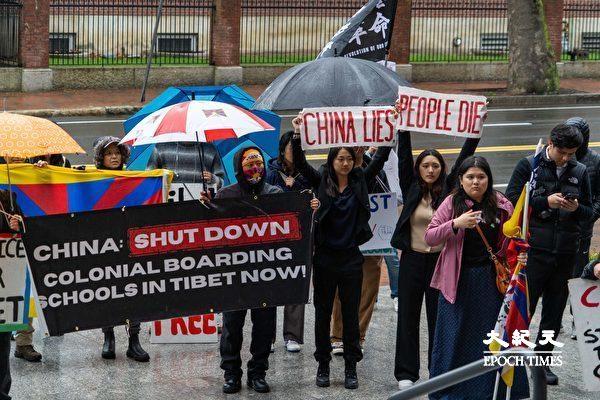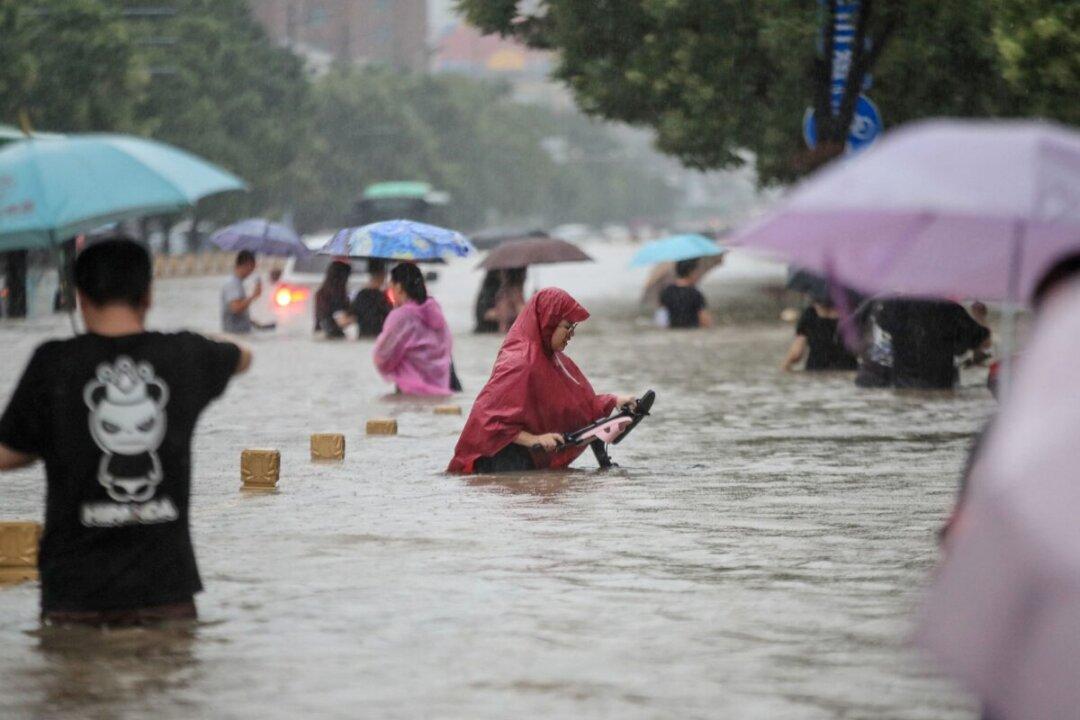[xtypo_dropcap]T[/xtypo_dropcap]ens of thousands of people took to the streets in cities across China last weekend. For three days they came out, without receiving the usual swift and harsh police intervention.
That is an impossible occurrence, some say, unless the protests were organized in connection with, or at least connived at by, the Chinese Communist Party (CCP), which benefits politically from the controlled expression of anti-Japanese sentiments. By positing itself as the guardian of national integrity, the Party reinforces its central role in defining Chinese identity for the masses.
The protests broke out in major cities simultaneously, and appear to be the largest outpouring of anti-Japanese feeling since 2005. Thousands of college students in Chengdu (Sichuan Province), Xi’an (Shaanxi Province), Hangzhou (Zhejiang Provine), and Zhengzhou (Henan Province) formed angry crowds on Oct. 16, and tens of thousands also participated in similar protests in other cities across China on Oct. 17 and 18.
But at the most politically sensitive location, the Japanese Embassy in Beijing, not a protester was to be found.
Suspected Regime Involvement
The rallies were not spontaneous outpourings of common sentiments, but instead were organized by government-supported student organizations, according to Apple Daily, a Hong Kong media outlet.
According to microblog posts, the protest on Oct. 17 in Mianyang City, Sichuan Province, started at 2 p.m. Police warned owners of Japanese brand cars to move their vehicles from the protest route, while two local Japanese stores and one Japanese car were attacked.
Chen Yunfei, a known dissident, witnessed the Oct. 16 march in Chengdu. He compared it to reports from Mianyang City: “One [similarity] is that the government and police knew in advance that students would be demonstrating there, and police were controlling the scene tightly. And the other is the attack on Japanese stores,” Chen said.
Chen said the Chengdu Public Security Bureau should follow the State Council’s information publicity regulations. It should release details of this demonstration and find out who was controlling it. “This should be made public. They should not suppress protests we [dissidents] organize, and allow the ones that they are pleased with,” Chen said.
Gao Hongming, a dissident in Beijing, felt the same way. “The citizens’ right to demonstrate has never been honored,” Gao said. “Local public security authorities refuse and stop every request for parades by citizens. Only when it is something allowed by the authorities, is it permitted.”
Others also read vaguely sinister motives into the disparity between how this protest was handled, and how others usually are. “This march seems to be controlled by the CCP from behind the scenes,” Tang Jingling, a human rights lawyer in Guangdong told The Epoch Times. “It is not really a reflection or expression of the people’s feelings about Sino-Japanese relations. It [the CCP] is using the people’s emotions to achieve its ulterior motive.”
Mainland Media Quiet
While widely reported by international media, most mainland media remained silent about the large-scale protests. State-run Xinhua reported on it, and a Foreign Ministry spokesman answered a few questions from reporters.
Search results on Baidu, mainland China’s largest search engine, yielded only one result: a reprint of a report by the Japanese Kyodo News. The entire article consists of just 200 characters.
Xinhua’s English-language website posted a report about the protests, while Xinhua’s Chinese-language website claimed that the Japanese right-wing stirred up trouble in China, and that the CCP has already communicated its serious concerns to the Japanese government.
Even the Hong Kong-based Phoenix website, which is known for its loyalty to the CCP, did not post the Xinhua account until 12 hours after the incident.
Tang and Gao believe that authorities wanted media quiet in China to avoid copycat anti-Japanese protests that the authorities had no way of controlling.
Chen, the dissident in Sichuan, assumed that if authorities let protests run their own course, things might take a different turn. Police told him that their job was to control the situation, and to prevent the demonstration from changing tone, he said.
Others have argued that Chinese-language reports were de-emphasized and English reports emphasized as a way of showing the West that large scale protests are permitted in China.
Meanwhile, Domestic Issues
Chen Yunfei says part of the reason for the protests were to maintain a drumbeat of nationalism, led by the Communist Party, while China’s own domestic issues remain unresolved.
“If the Diaoyu Islands belongs to China, the Chinese government should get it back through diplomatic efforts. If diplomacy fails, our army can take it back. Since the army could go to Tiananmen Square to crack down on students and citizens, why can they not get our own land back?” he questioned.
Chen added that he is most concerned about whether his own home or his fellow countrymen’s homes could be forcibly demolished.
“If we cannot even defend our own homes, how are we going to defend the Diaoyu Islands?” Chen said.
Read the original Chinese article.



